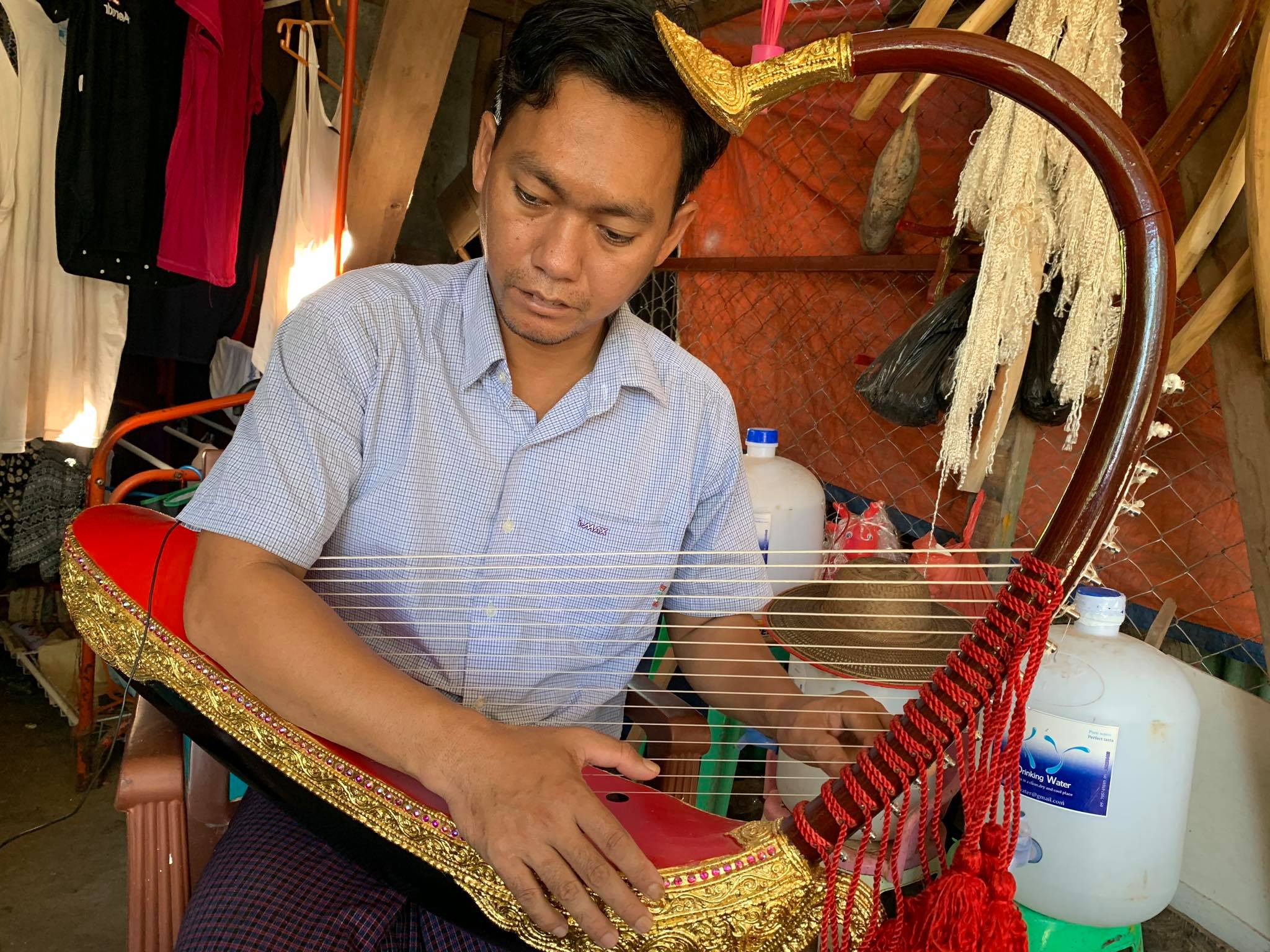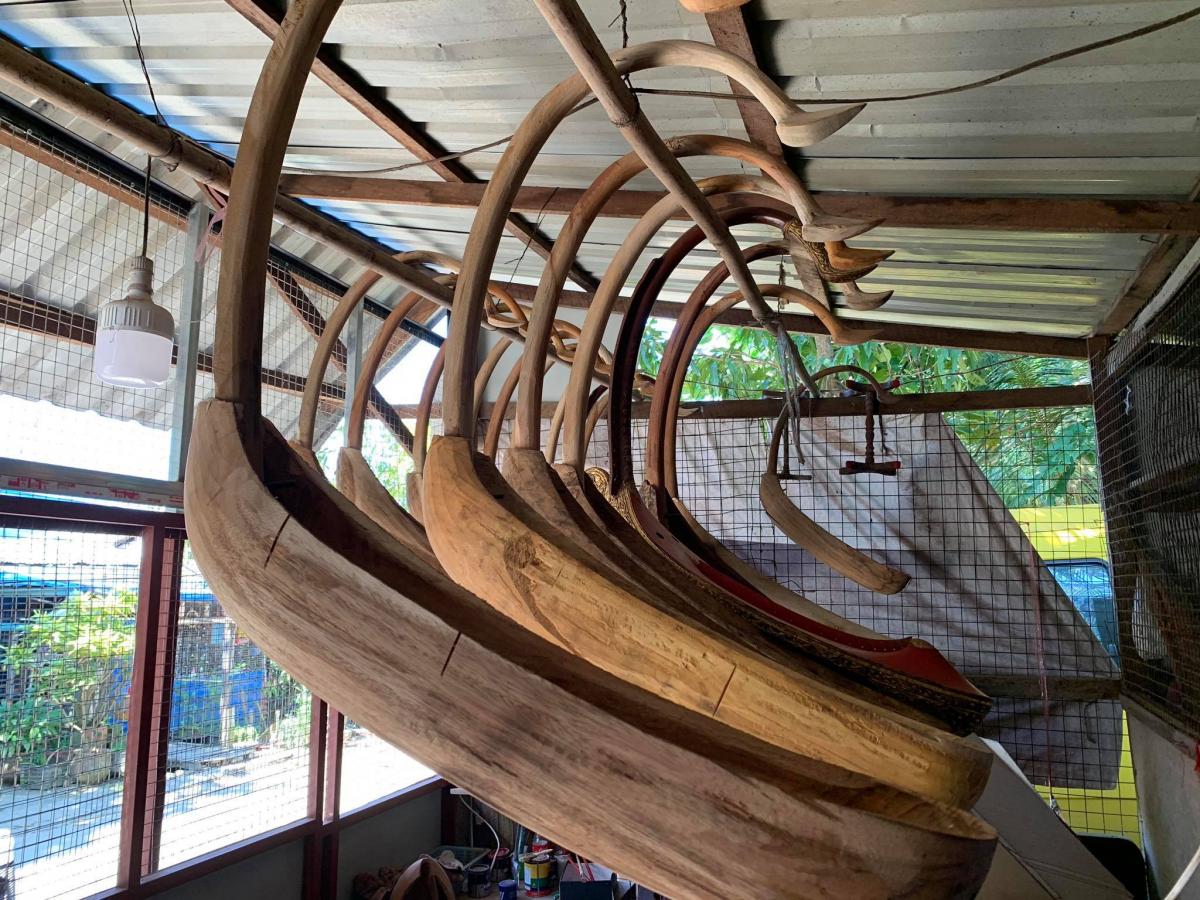
Down a little alley in Yangon, Aye Aung Win, 37, spends his days in his workshop perfecting the art of harp making. He is unsure how many others are doing the same in Myanmar, but he could probably count them on one hand.
Aye Aung Win, who works in North Okkalapa township, began learning to make traditional Burmese harps when he was in fourth grade. Harp making has been the livelihood and pride for generations in his family and was passed onto him by his father, Hla San.
Like his late father, Aye Aung Win is passionate about this art.
“I feel very proud that I am able to help sustain a tradition that is so valuable and symbolistic to our country,” he told Myanmar Mix.
When it comes to his trade, he prioritises quality over quantity. To ensure that each of the harps is made with the utmost care and precision, he and his small team of five employees make up to only two harps each month.
“The process of making a high-quality harp is very time-consuming,” he explained.
The first step of the process is to find the best choice of wood for the instrument, which he purchases from small lumberyards all around Yangon.
Once he has carved the wood into the body of the harp, he hangs it to dry for two to four years, as solid spruce tends to improve in sound with age.
“The harps would only be good for decoration if I make them recklessly in large batches,” he said. “I don’t have the heart to do it that way.”
He quotes his clients 200,000-500,000 kyats (U$152-380) for each harp, depending on the material used. Their willingness to pay is testimony to the quality of his instruments, he said.
His clients are mostly high-profile veteran musicians who have a deep appreciation for Burmese culture and want to preserve traditional arts. They call Aye Aung Win by the affectionate nickname Phoe Thar, a term used by older people for younger people who they love.
One of his regular customers and close friends is Lay Phyu, the lead vocalist of renowned rock band Iron Cross. He has also received orders from other countries, including China, India, Japan, the United States, and Germany.
Despite the interest in his work, Aye Aung Win said that it is difficult to make a profit. With lockdown restrictions imposed to tackle Covid-19, business has become even more challenging—potential customers are no longer able to visit his workshop and his employees have returned to their villages. Most of his sales are now made on Facebook, under the account “Phoe Tharrharp.”
However, Aye Aung Win is optimistic. He said the old days were much harder for his parents, who had no internet or other 21st Century conveniences.
“My father had to carry his harps and go around the city showcasing his products to musicians,” he recalled. “U Hla San’s life was conflict after conflict.”
He remembered his father going for a long stretch without customers during the nationwide pro-democracy uprisings of 1988 and their aftermath.
“But he was infatuated with this craft, and desperately wished to preserve it. He was always sitting here, sawdust flying all around him, with no regards to his health,” added Aye Aung Win.
When his father died from throat cancer in 2011, Aye Aung Win was devastated. Having lost his parent and also his savings on the medical treatment, he considered giving up the craft and getting another job, but musicians came to visit him and convinced him to continue making harps.
Now, with no one to pass his craftsmanship onto, Aye Aung Win is growing concerned about the future of this artistry.
“This isn’t a craft that belongs to me. It belongs to the nation. When I’m gone, I want this legacy to live on,” he said.
His vision of conservation involves active participation from the government. This includes having Burmese harps registered as Myanmar’s cultural heritage under UNESCO and the conservation of valuable hardwood trees. He also hopes that a government-funded crafts school—where he could share his expertise—will be established.
However, his previous applications for government grants have all ended in fruitless discussions.
Two years ago, a government poll revealed a consensus among citizens that the harp-making tradition and ancient manuscripts are legacies that need to be preserved most urgently. Aye Aung Win expected the poll’s results to push the government to recognize the value of harp making, but he said no efforts have been made towards preserving the tradition.
“There have been times when I have felt angry about this,” he said. “I’m trying hard to spread awareness about how important this tradition is to our culture, just like my parents did, but we’re not moving forward.”


